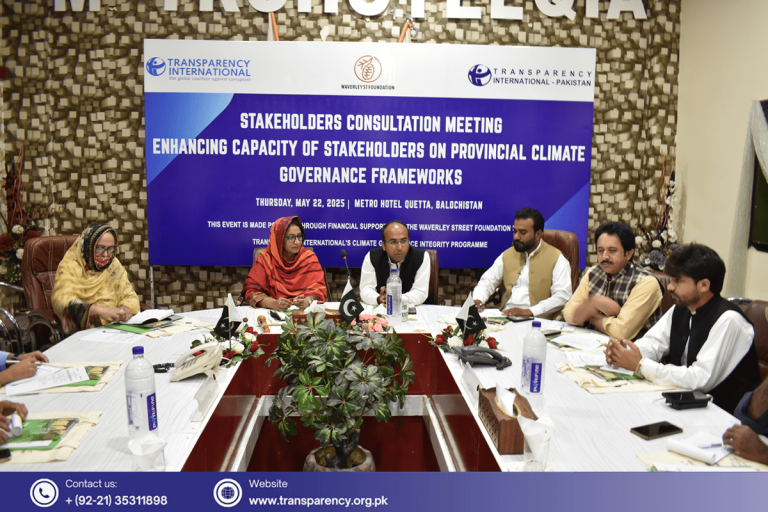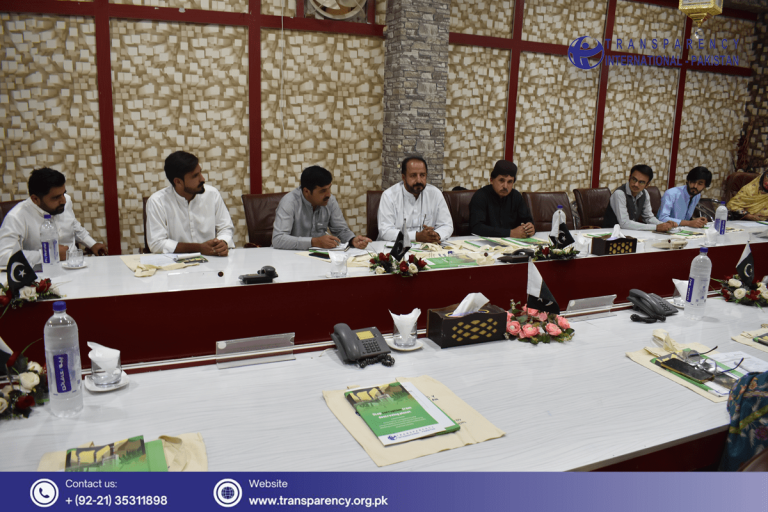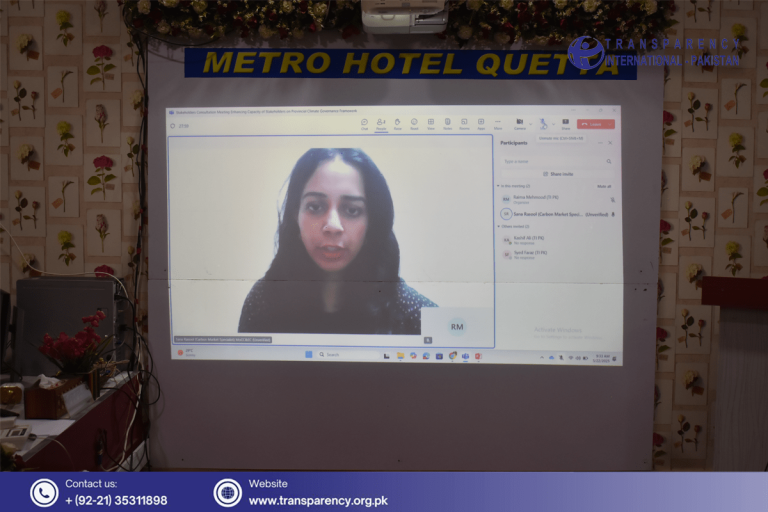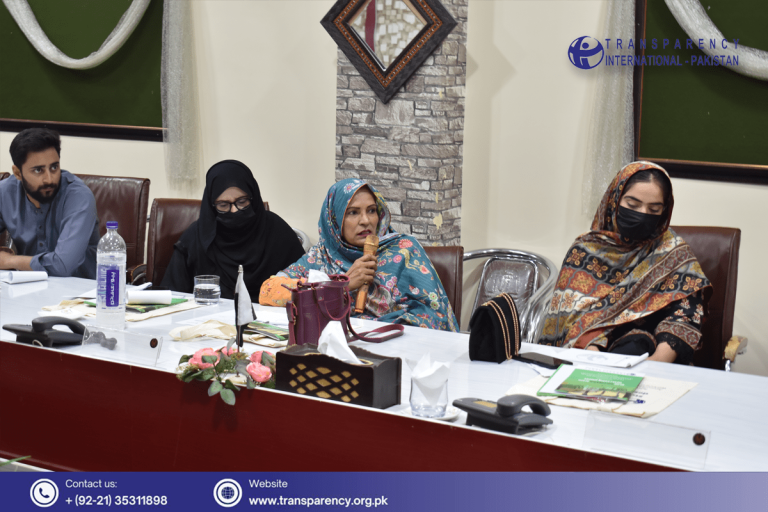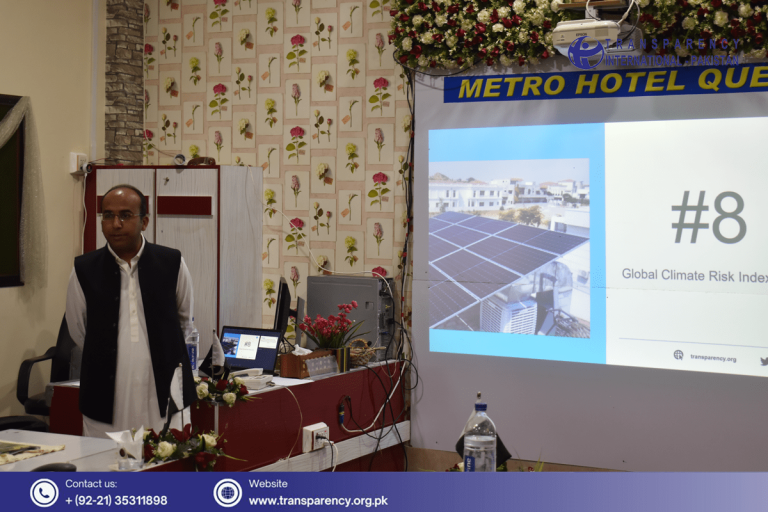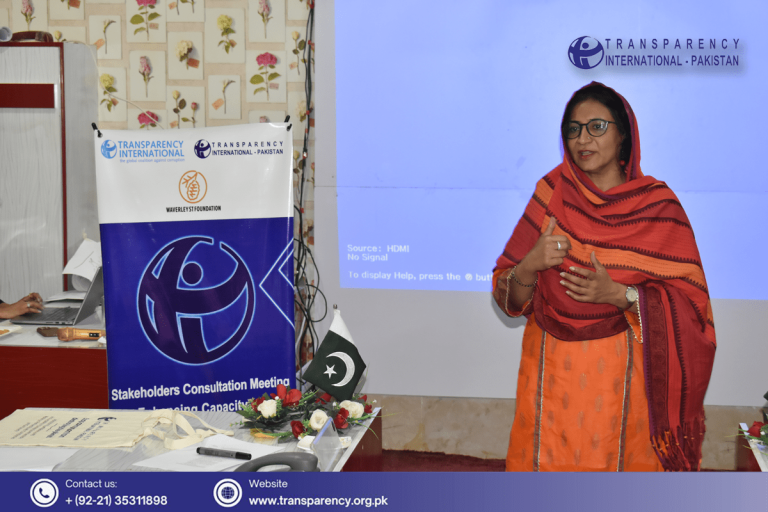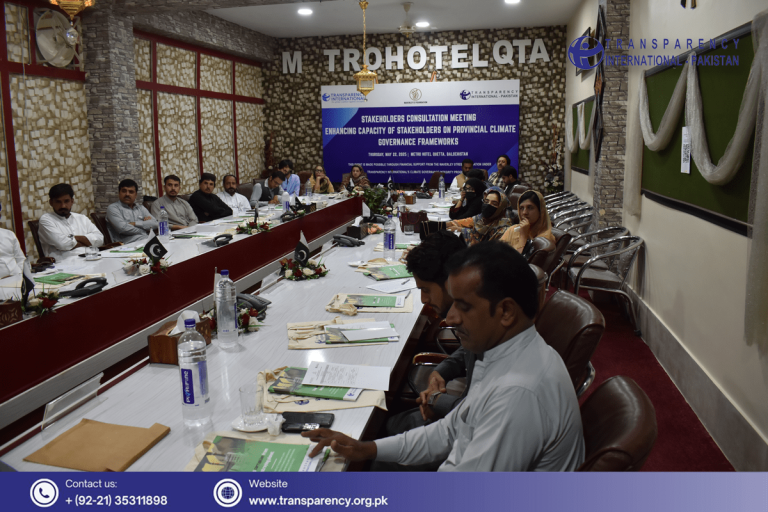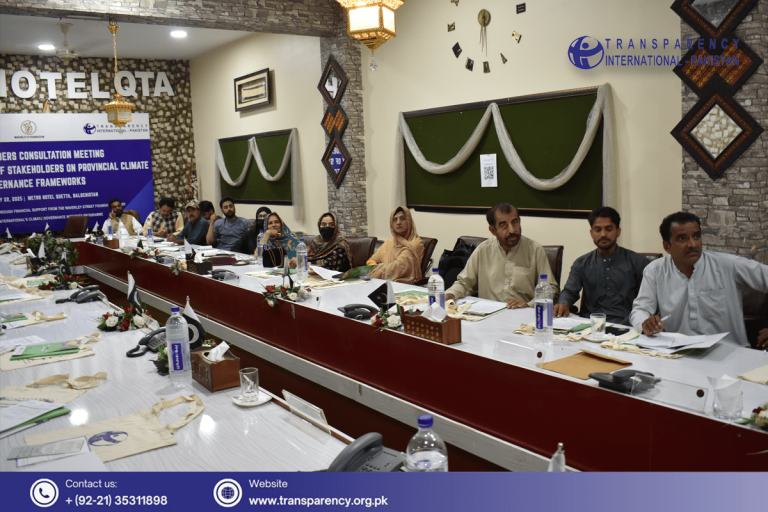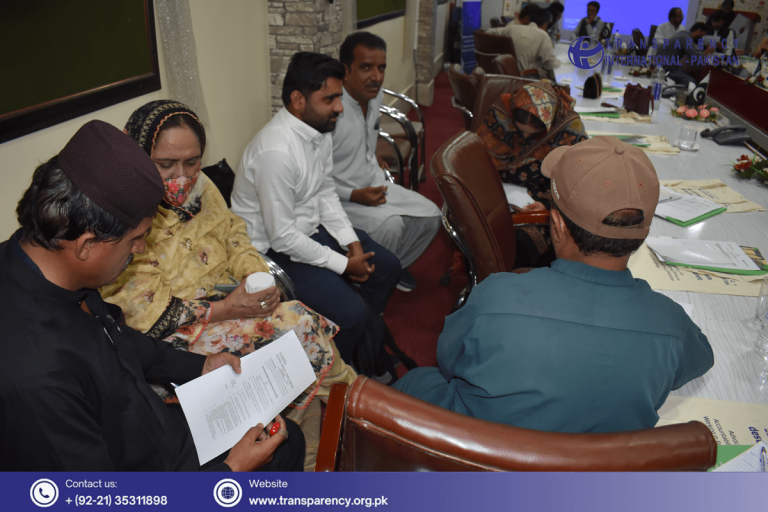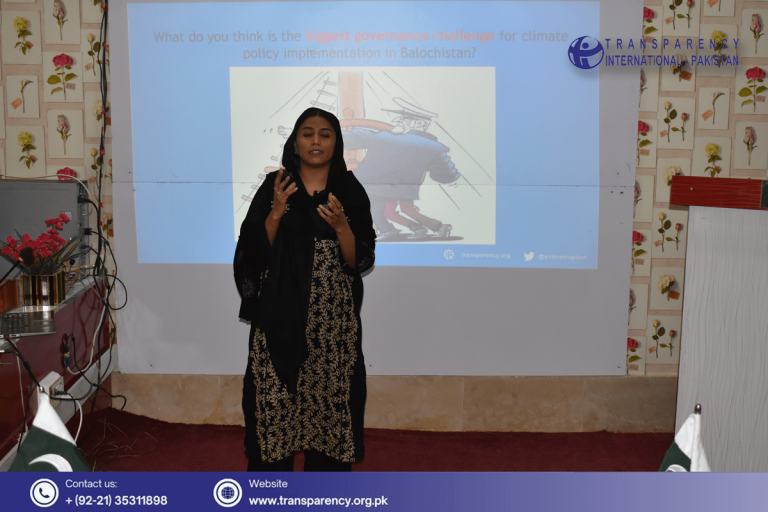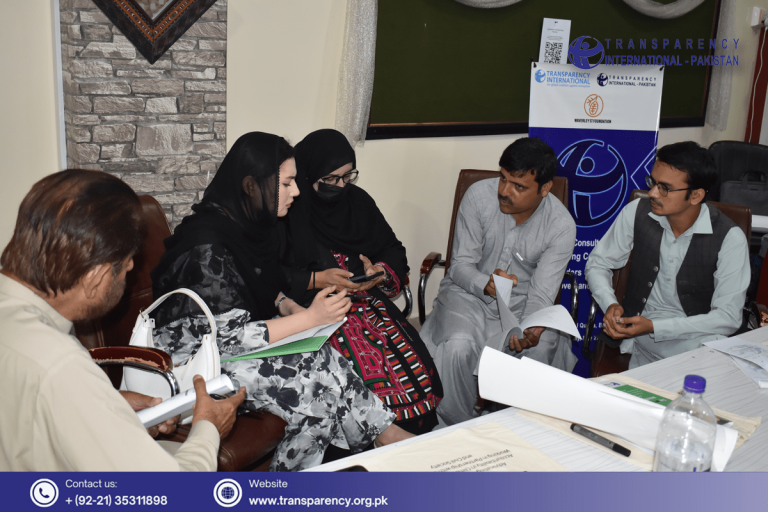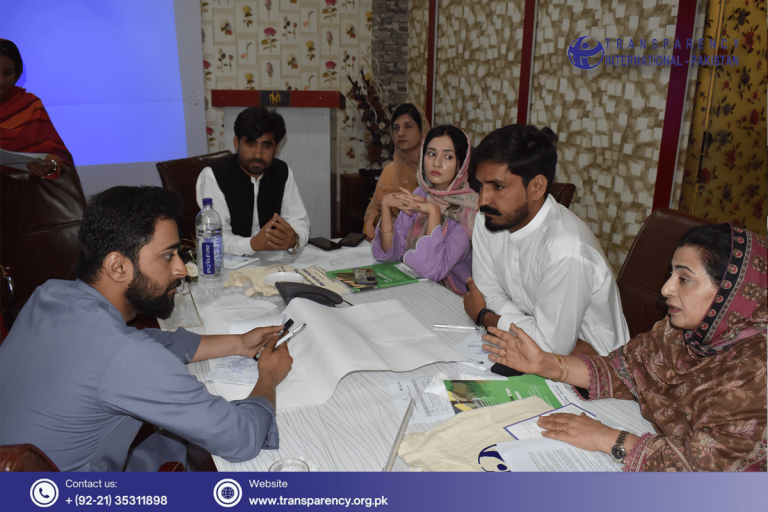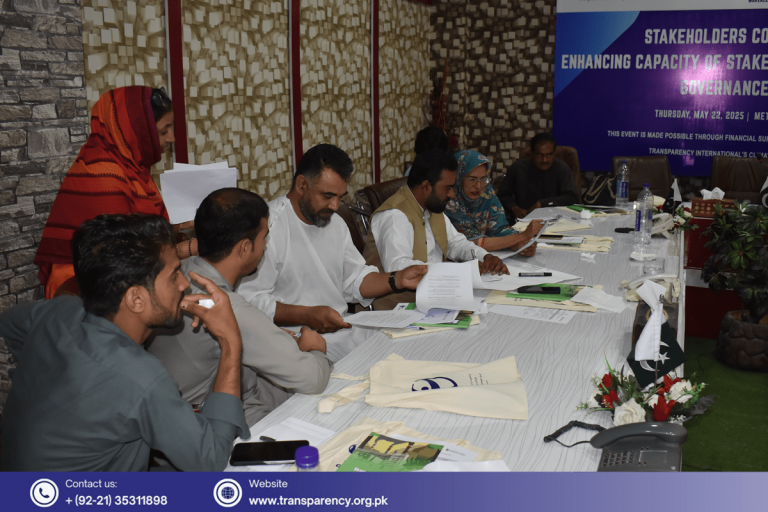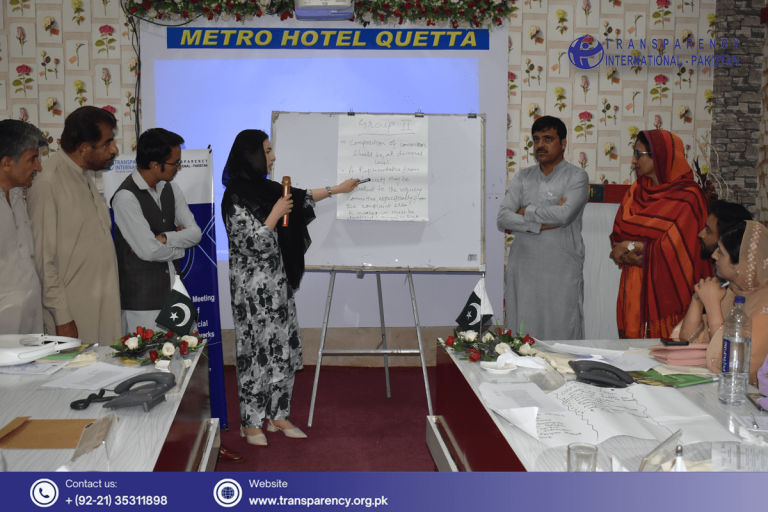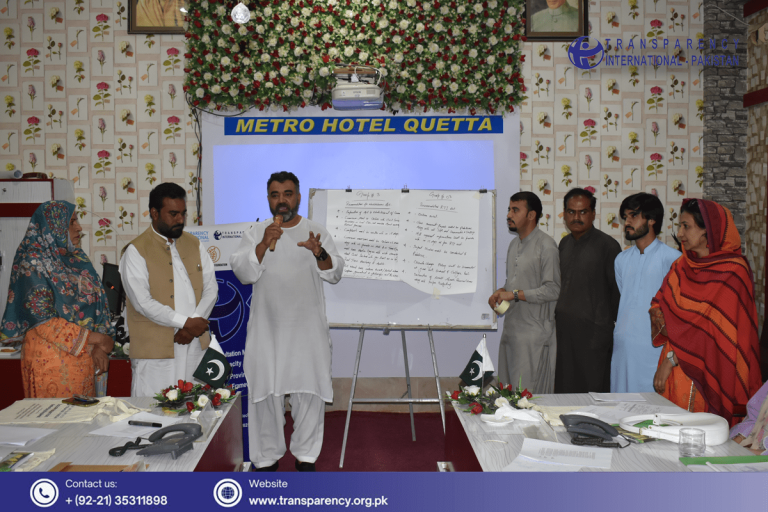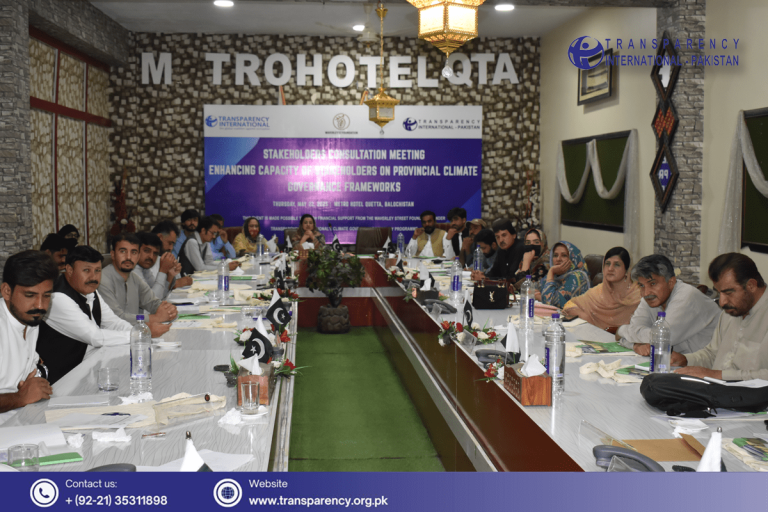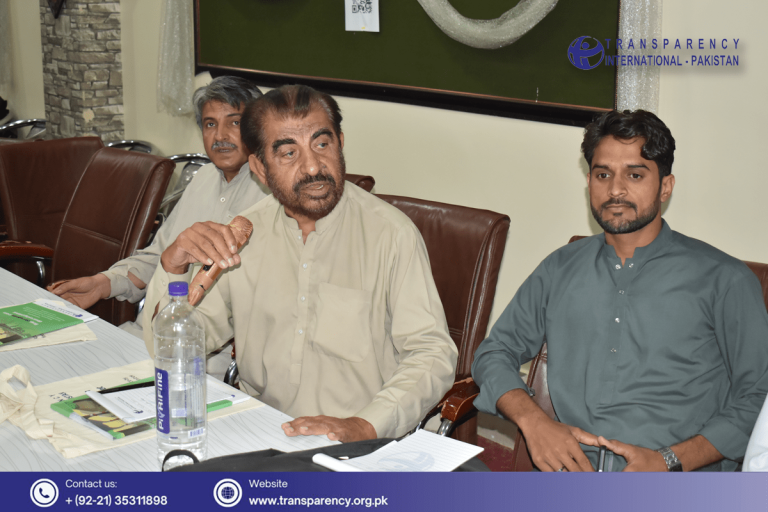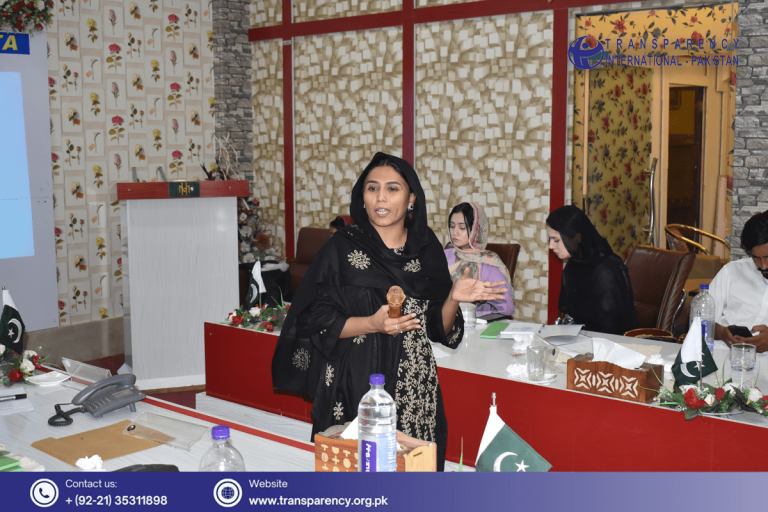Stakeholders Consultation Meeting Enhancing the Capacity of Stakeholders on Provincial Climate Governance Frameworks
Stakeholders Consultation Meeting Enhancing the Capacity of Stakeholders on Provincial Climate Governance Frameworks
Date: Thursday, May 22, 2025
Venue: Metro Hotel, Quetta
Transparency International Pakistan organized a Civil Society Stakeholder Consultation Meeting titled “Enhancing the Capacity of Stakeholders on Provincial Climate Governance Frameworks” on Thursday, May 22, 2025 at Quetta, Balochistan. The meeting was a continuation of TI Pakistan Balochistan Civil Society Network on Transparent and Inclusive Climate Governance, established on November 2, 2023.
The consultation meeting was attended by 26 representatives, including 8 women and 18 men, from 26 civil society organizations representing climate-vulnerable districts across Balochistan. The meeting emphasized strengthening social accountability for effective climate governance in Balochistan and understanding the policy landscape for carbon markets in Pakistan, with a focus on safeguards for transparency and community participation.
Ms. Nasreen Memon, Project Coordinator at Transparency International Pakistan, welcomed the participants and highlighted the achievements of the Balochistan CSO Network. She emphasized the pivotal role of TI Pakistan’s Climate Governance Project Networks in improving the inclusivity and integrity of climate governance in the country. Notably, the network’s recommendations were successfully integrated into the Balochistan Climate Change Policy 2024, making it more robust and inclusive. Ms. Memon urged civil society to advocate for the transparent and effective implementation of these policies.
Next, Ms. Sana Rasool, Carbon Market Specialist from the Ministry of Climate Change & Environmental Coordination, Government of Pakistan delivered an insightful session titled “Understanding the Policy Landscape for Carbon Markets in Pakistan: Safeguards for Transparency and Community Participation.” She provided participants with a comprehensive overview of Pakistan’s emerging carbon market framework, developed in line with the National Carbon Market Policy Guidelines and the country’s commitments under the Paris Agreement. Ms. Rasool emphasized that while carbon markets hold significant potential to mobilize climate finance and incentivize low-carbon development, their success depends on the establishment of strong governance systems.
Importantly, Ms. Rasool underscored the vital role of CSOs in supporting the accountable development of carbon markets. She highlighted that CSOs are essential in monitoring project implementation, raising community awareness, advocating for policy reforms, and serving as independent watchdogs to safeguard public interest. To address these challenges, she emphasized the importance of mandatory community consultation processes and mechanisms to ensure that communities not only participate in carbon projects but also equitably share in the resulting benefits. She encouraged Civil Society Organizations (CSOs) to actively engage in the carbon market landscape by developing and proposing community-centered project ideas that align with national climate goals.
Moving on, Mr. Kashif Ali, Executive Director, TI Pakistan, delivered a presentation on Strengthening Social Accountability for Effective Climate Governance in Balochistan. He discussed that effective climate governance in Balochistan requires integrity, transparency, and anti-corruption measures as core values. The UN Convention Against Corruption (UNCAC) highlights key corruption issues, including bribery, embezzlement, illicit enrichment, and money laundering. It connects these to climate action, focusing on public procurement, whistleblower protection, and misuse of public funds. Strengthening social accountability is essential for sustainable climate efforts.
Mr. Ali highlighted that the absence of whistleblower protection laws in Pakistan at the federal and provincial levels is a major concern. Currently, Khyber Pakhtunkhwa (KP) is the only province that has enacted the Whistleblower Protection & Vigilance Commission Act 2016, however, the Act’s implementation remains weak as KP has not yet established the mandated Whistleblower Protection & Vigilance Commission.
As part of the Open Forum session during the Stakeholders Consultation Meeting, a group activity was conducted to gather recommendations from civil society participants on strengthening whistleblower protection and enhancing transparency in climate governance in Balochistan. Ms. Raima Mehmood, Policy and Research Coordinator at TI Pakistan, opened the session with an overview of Section 5 of the Balochistan Right to Information (RTI) Act 2021, highlighting the legal obligation of public bodies to proactively disclose climate-related information, including laws, institutional responsibilities, budgets, financing schemes, and access procedures. She emphasized that transparency provisions and strong public information mechanisms must be incorporated into the draft Whistleblower Protection Act proposed for Balochistan to ensure accountability in the implementation of climate policies and projects.
Participants were divided into four working groups and provided with whistleblower protection laws from Khyber Pakhtunkhwa and the National Assembly, along with draft recommendations prepared by TI Pakistan for the Balochistan context. Each group was tasked with reviewing these documents, identifying legislative and implementation gaps, and developing concrete recommendations for a context-specific whistleblower law for the province. The activity prompted rich discussion, and several key recommendations emerged across the groups. These included the establishment of a safe and enabling environment for whistleblowers, legal protection from retaliation, mandatory confidentiality provisions, and the formation of an independent whistleblower commission with civil society representation. Groups also emphasized that climate-related whistleblower complaints should be fast-tracked and integrated into broader environmental governance structures. TI Pakistan committed to reviewing, consolidating, and sharing the full set of group recommendations with participants before submitting them to relevant provincial stakeholders and legislators for policy consideration and action.
Moving to last session, Ms. Raima delivered a presentation titled “Exploring the Balochistan Climate Change Policy 2024: Implementation Pathways and the Role of Civil Society Organizations (CSOs).” She explained that the policy emphasizes sustainable development and strengthening environmental resilience in the region.
Ms. Mehmood elaborated on the importance of multi-stakeholder collaboration, particularly the critical role that CSOs play in bridging policy and practice. She stressed that CSOs are well-positioned to mobilize communities, build local capacities, and serve as watchdogs to monitor the effectiveness and fairness of climate action. Their involvement is essential in promoting transparency, ensuring accountability in the use of climate finance, and amplifying the voices of those most affected by climate change. She also emphasized the need for CSOs to support public awareness, contribute to climate budgeting, and participate in decision-making processes to ensure the policy remains responsive to ground realities. The session concluded with a call for CSOs to take an active role in shaping localized implementation strategies and engaging with government counterparts to ensure that the Balochistan Climate Change Policy translates into equitable, inclusive, and effective climate solutions.
Towards, the end participants appreciated TI Pakistan efforts to engage grassroot organization in climate governance advocacy. As next steps, TI Pakistan along with the network will take up recommendations generated from CSO network to advocate for integrity and inclusion in provincial climate governance frameworks.

